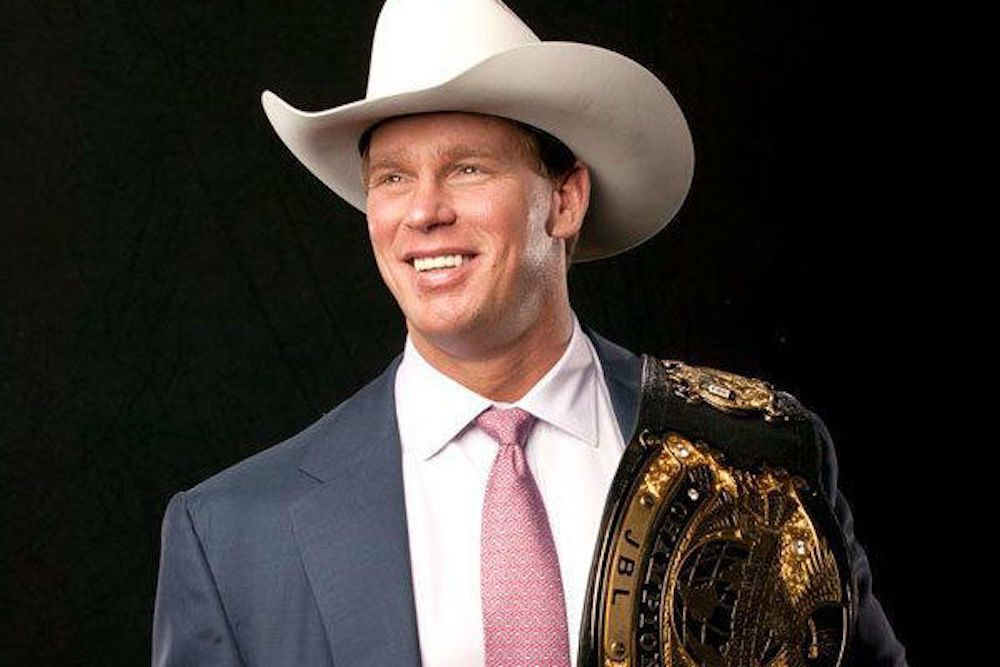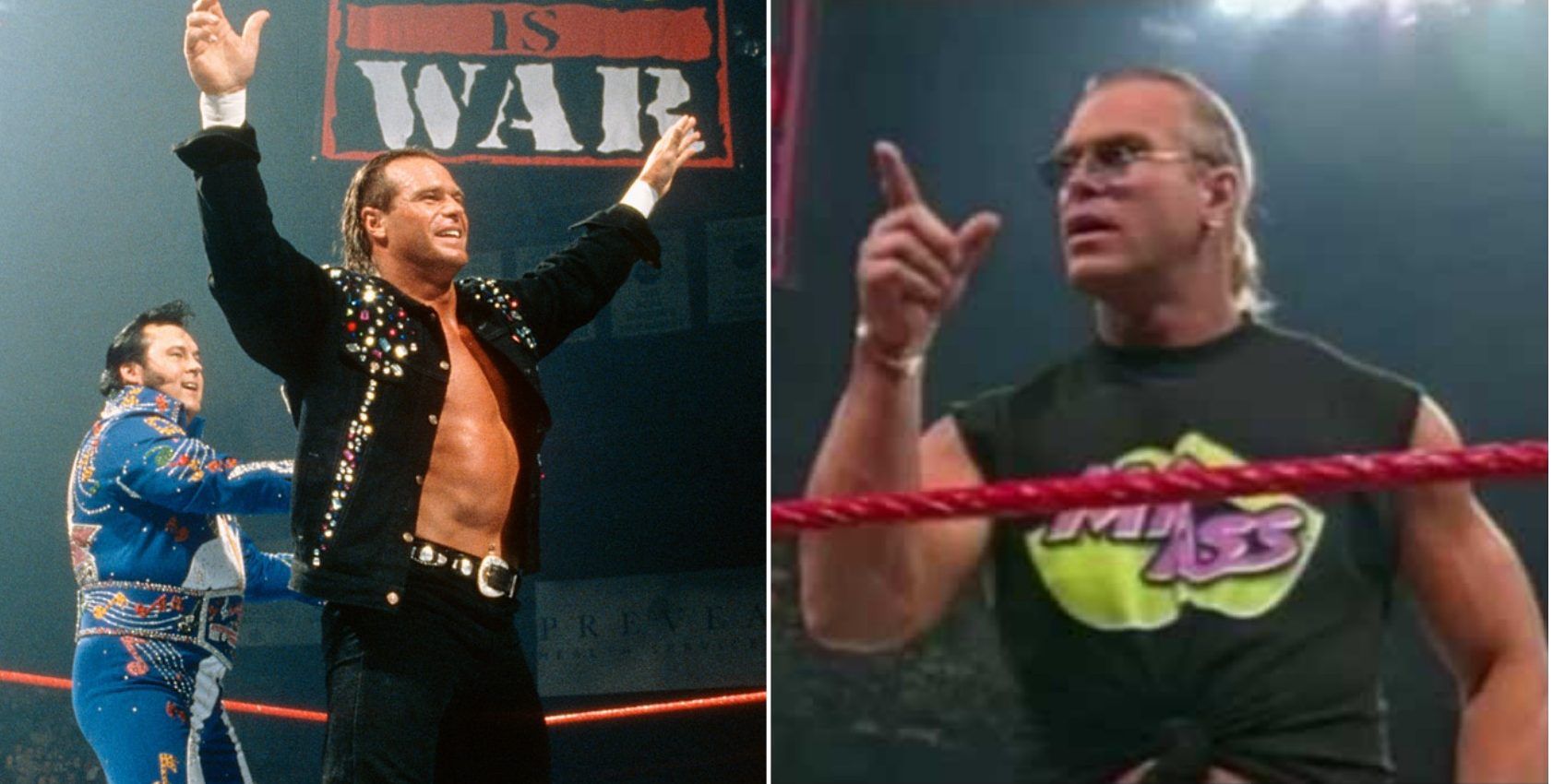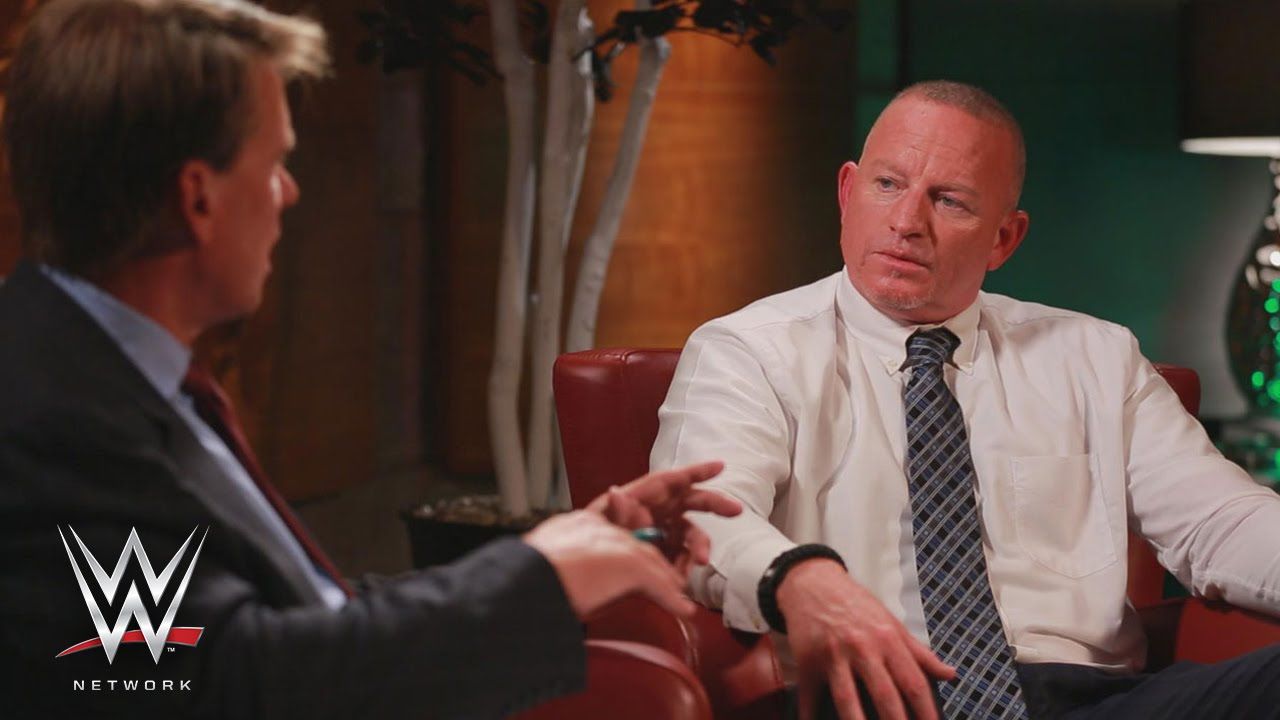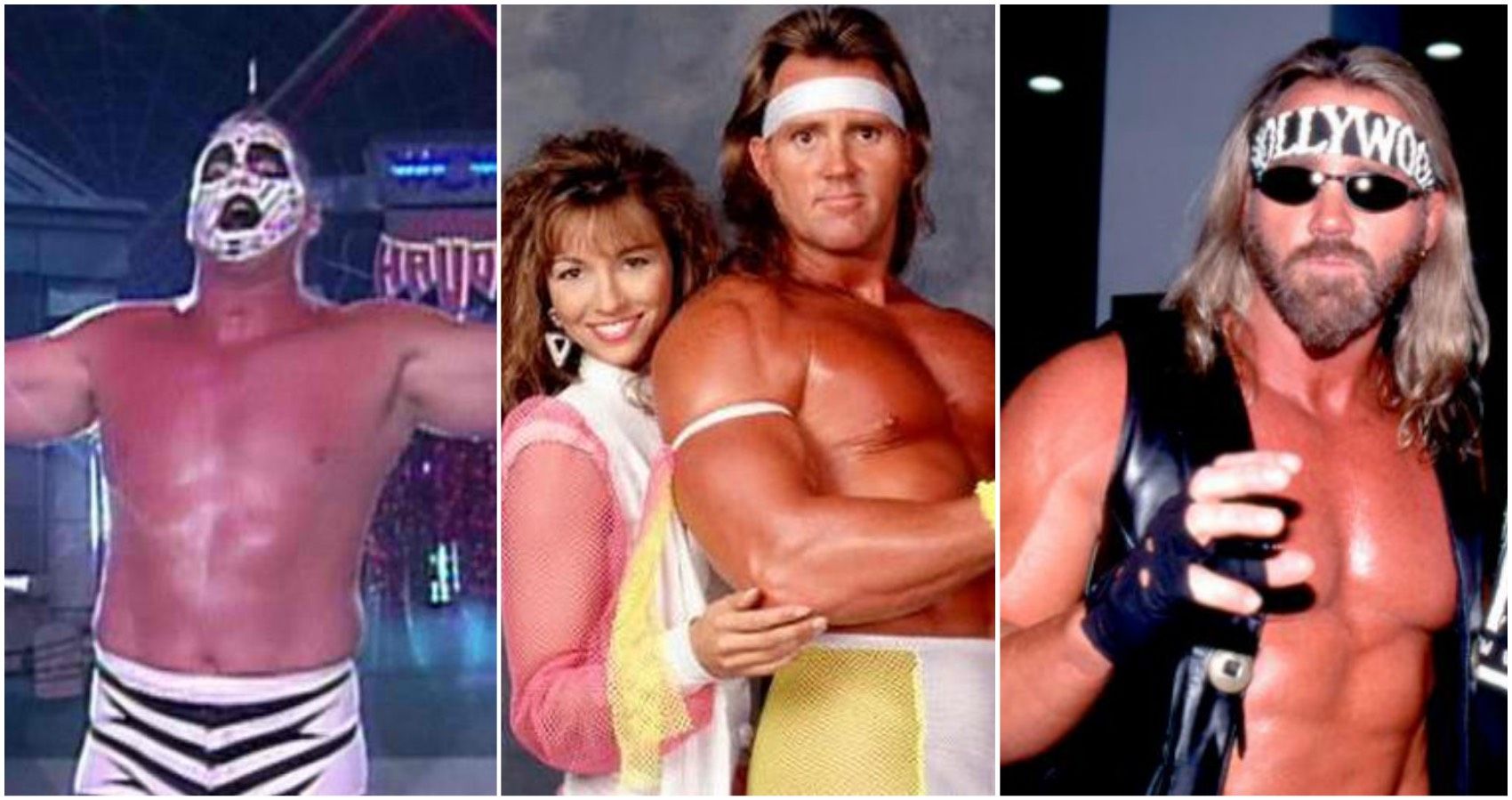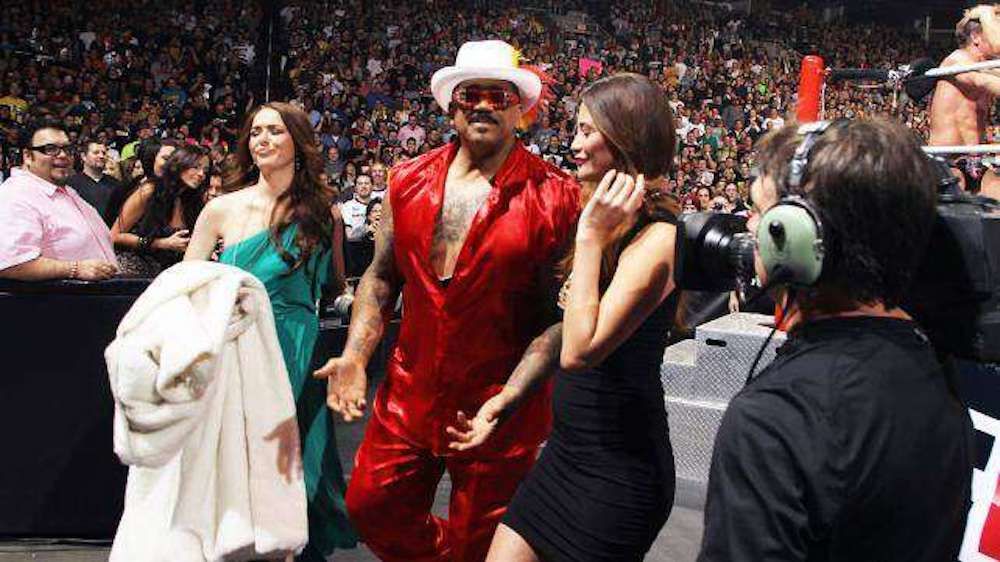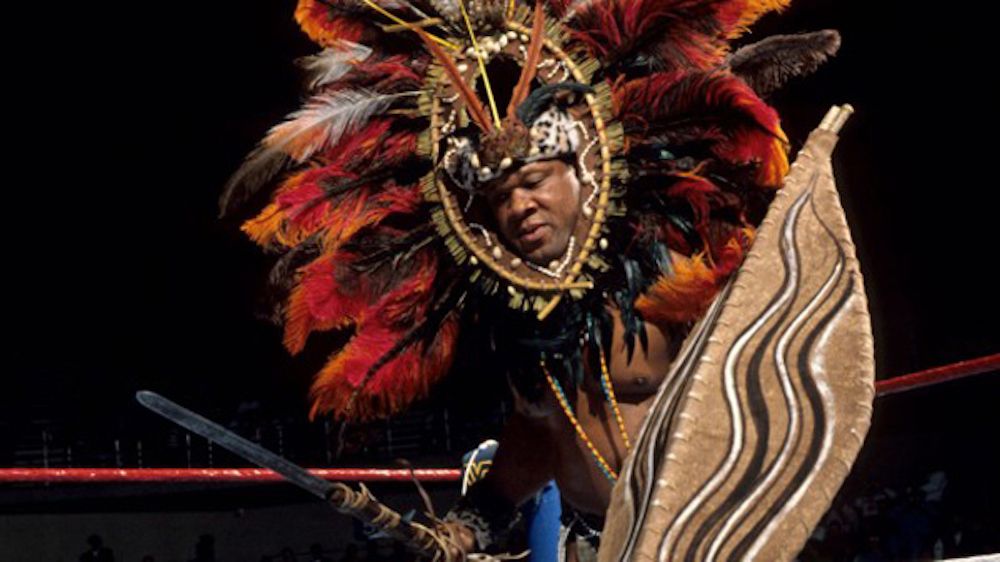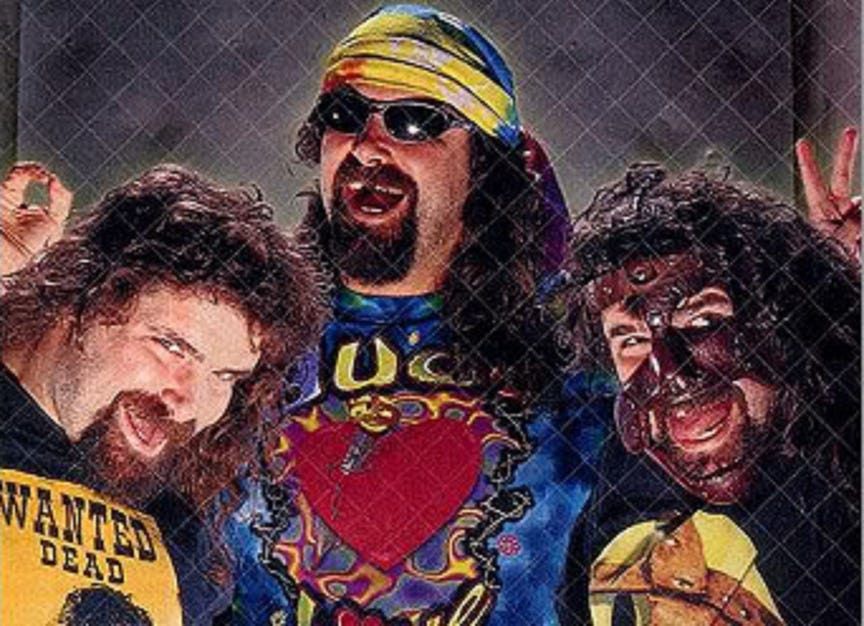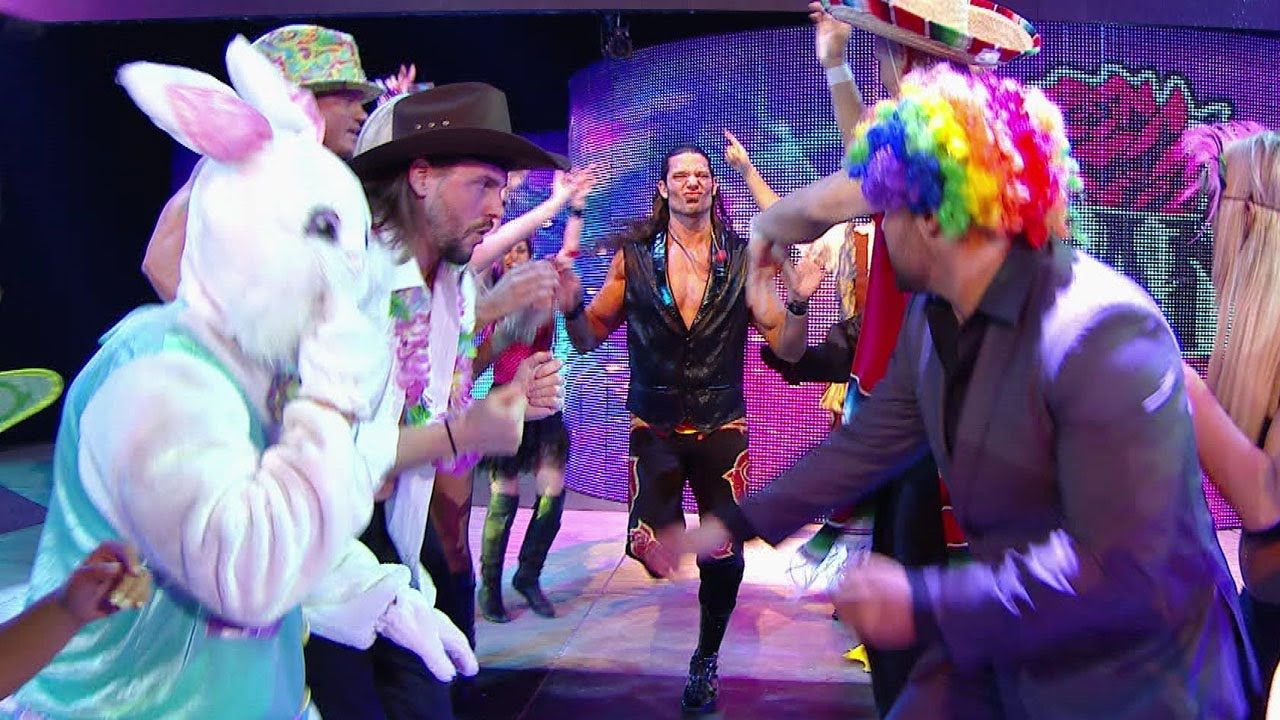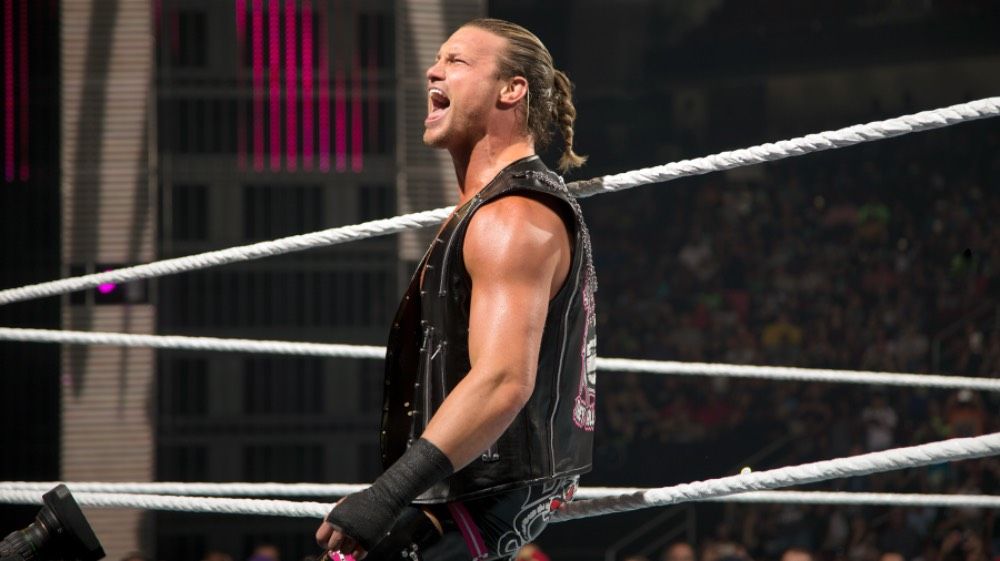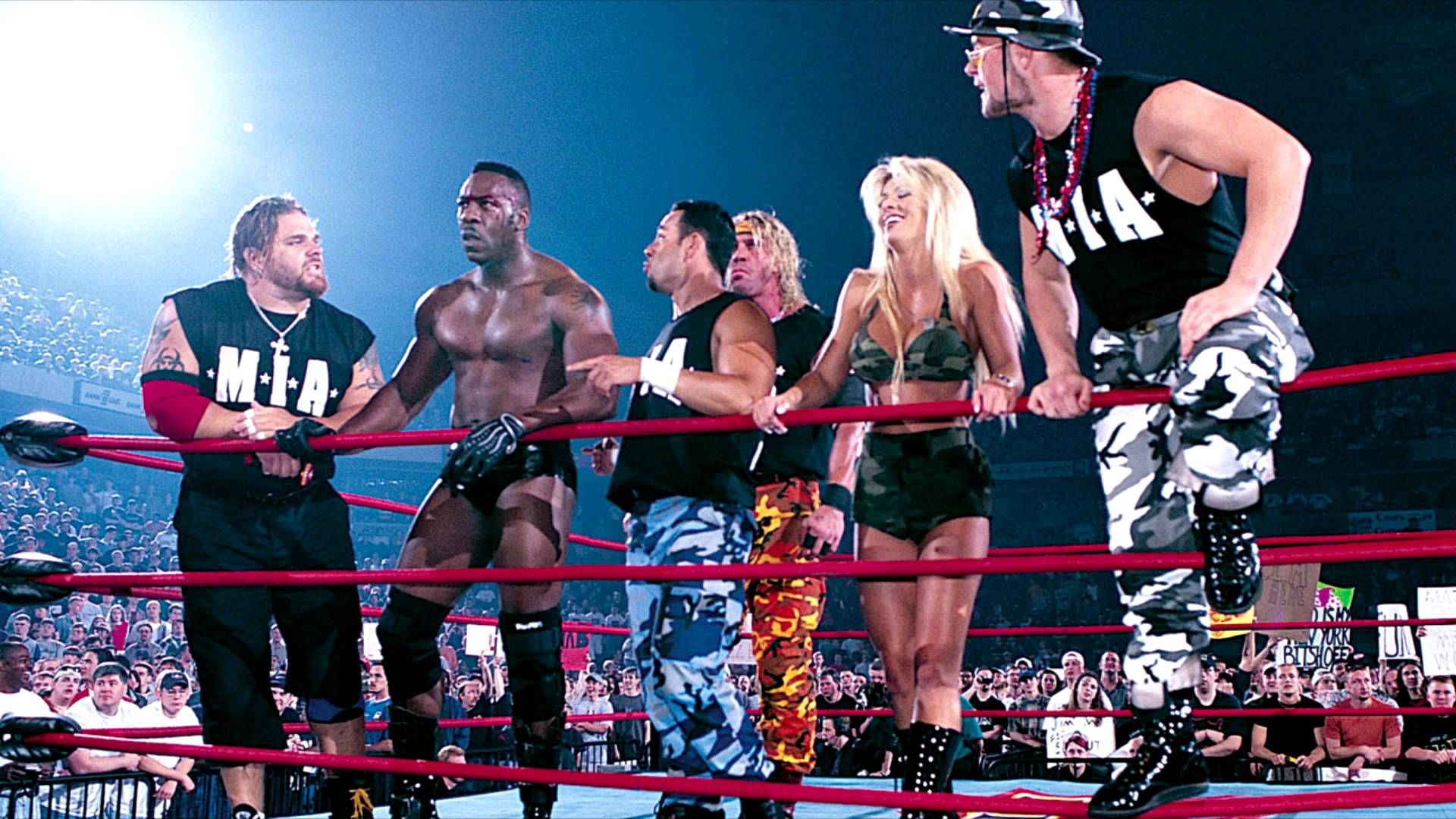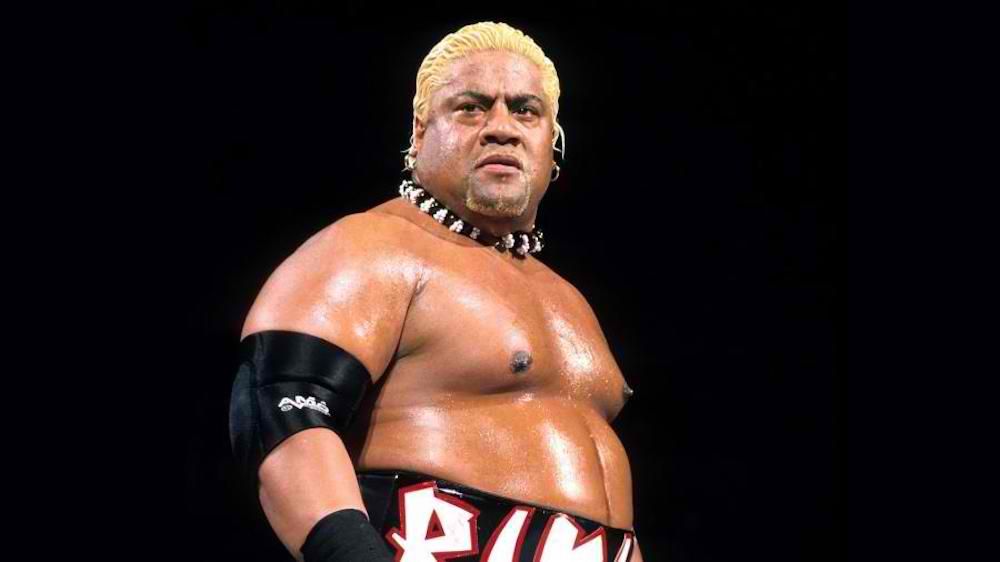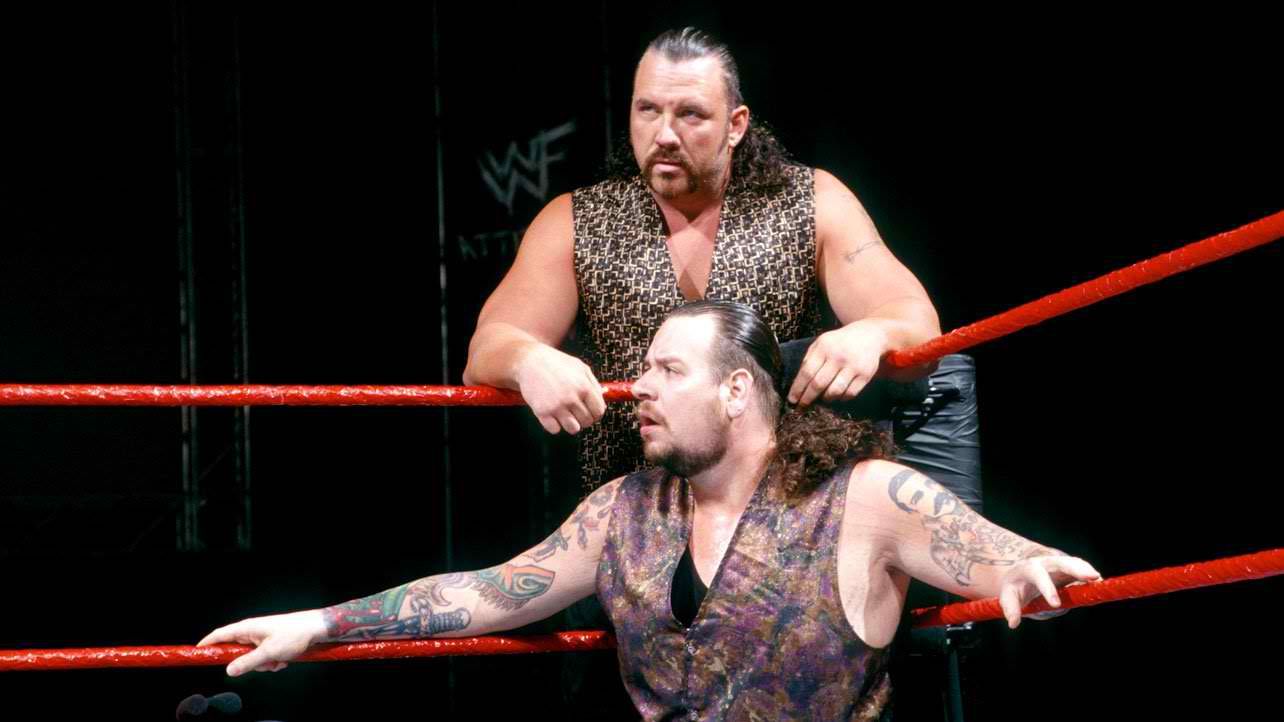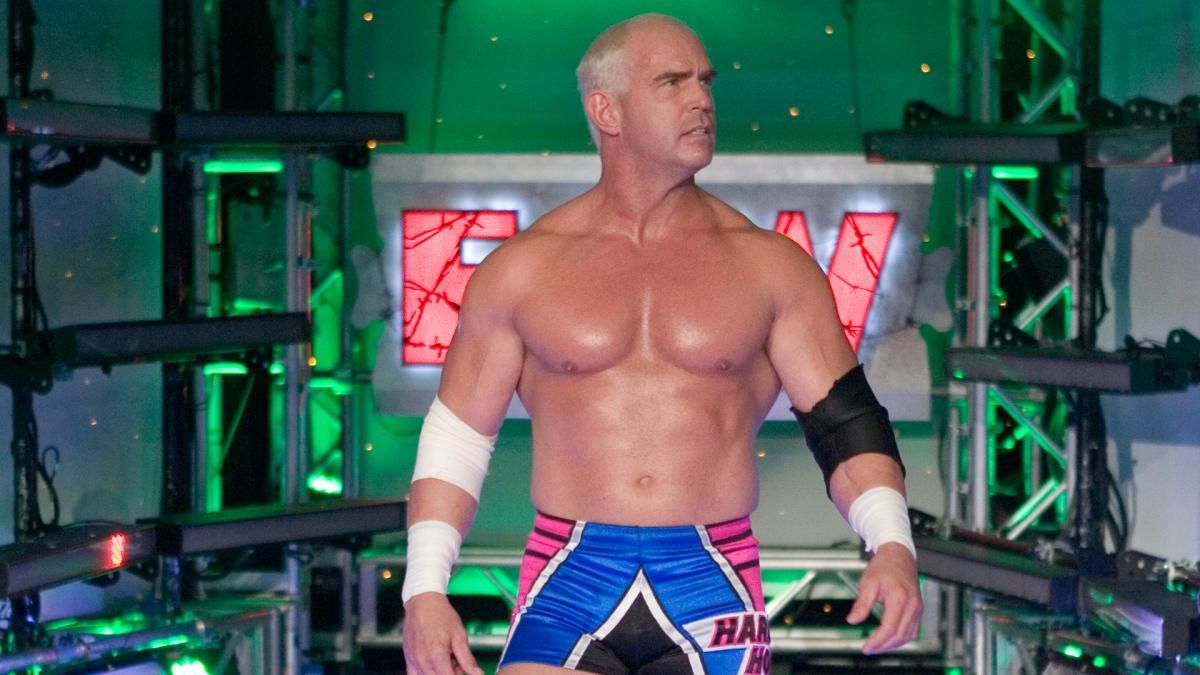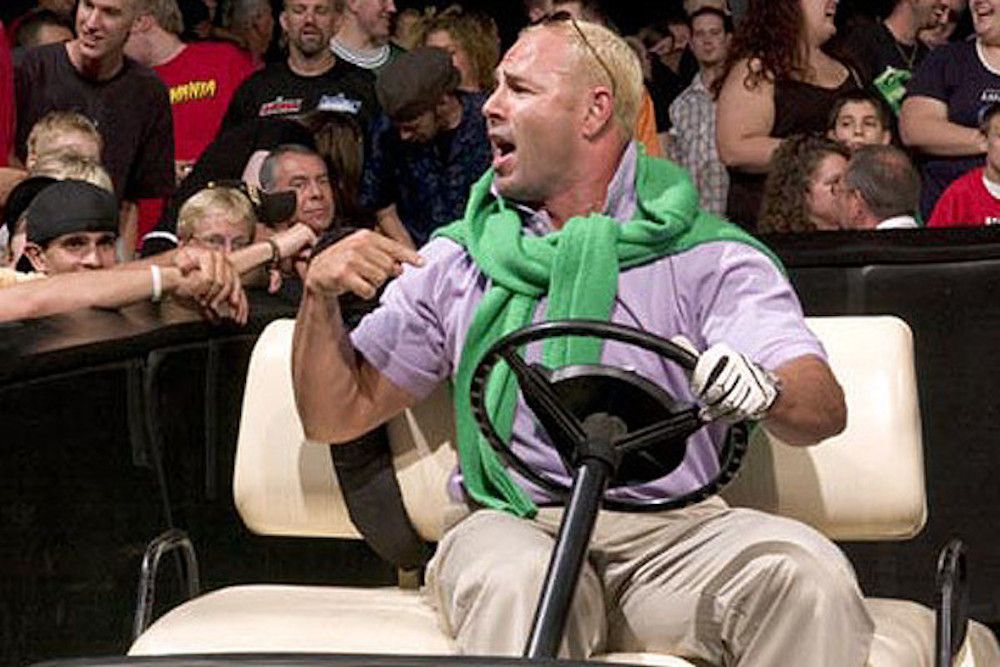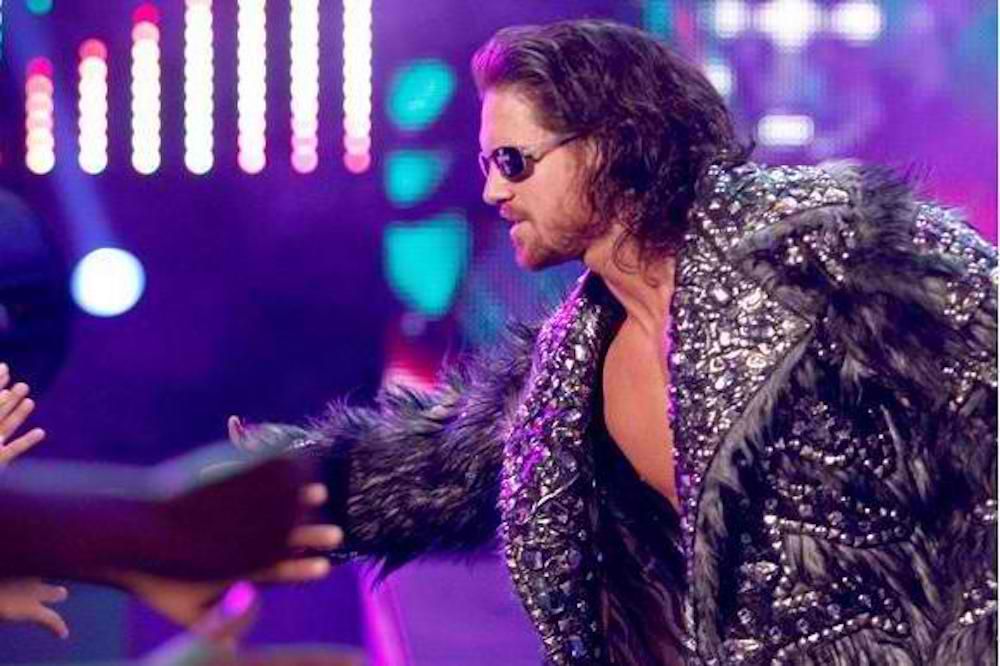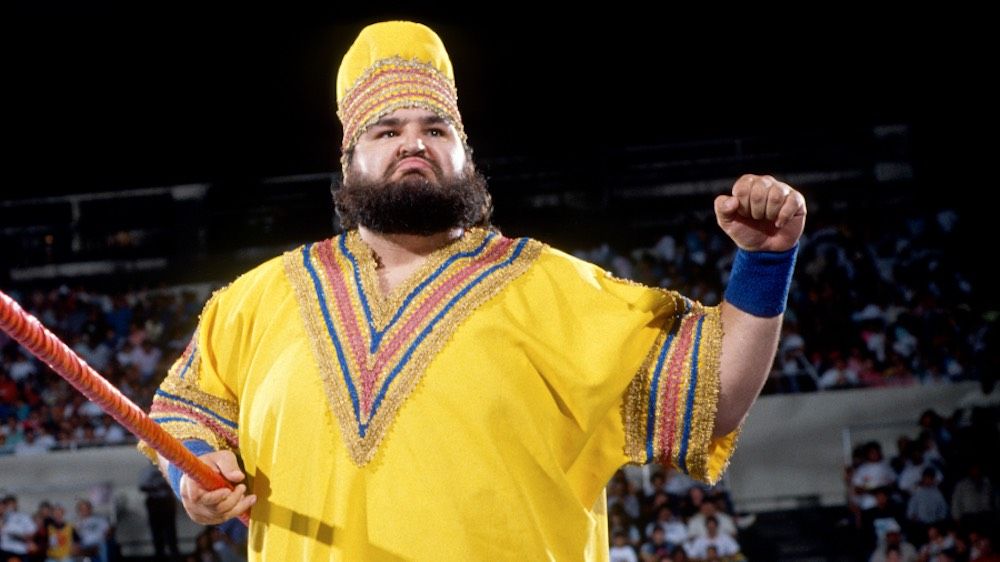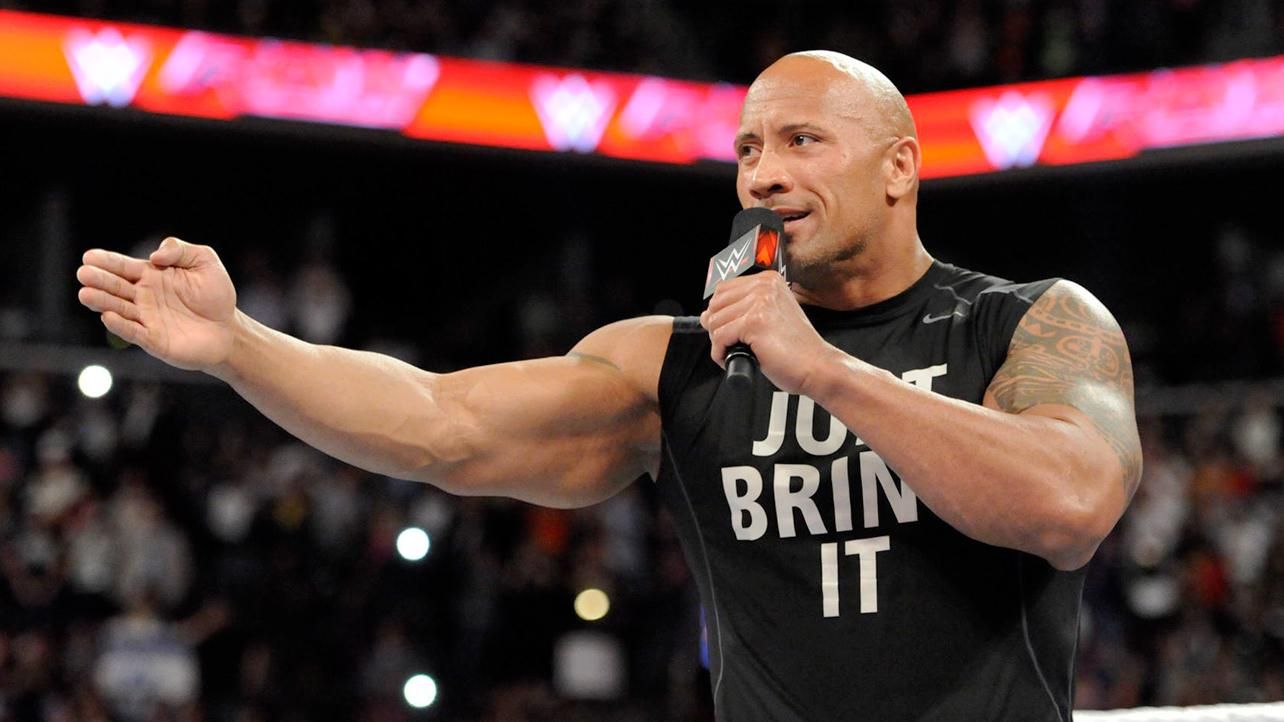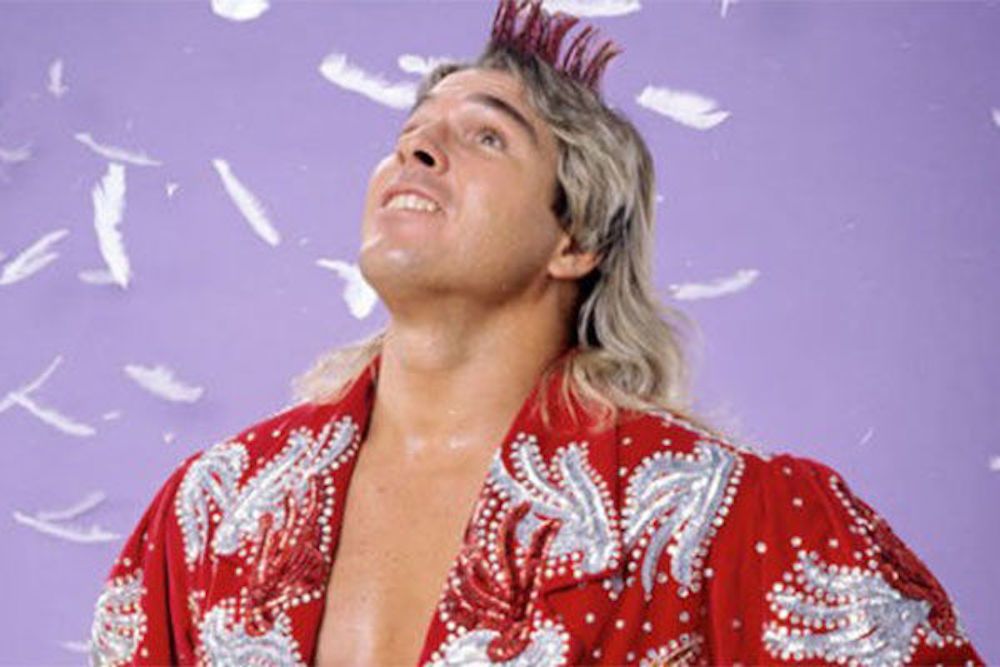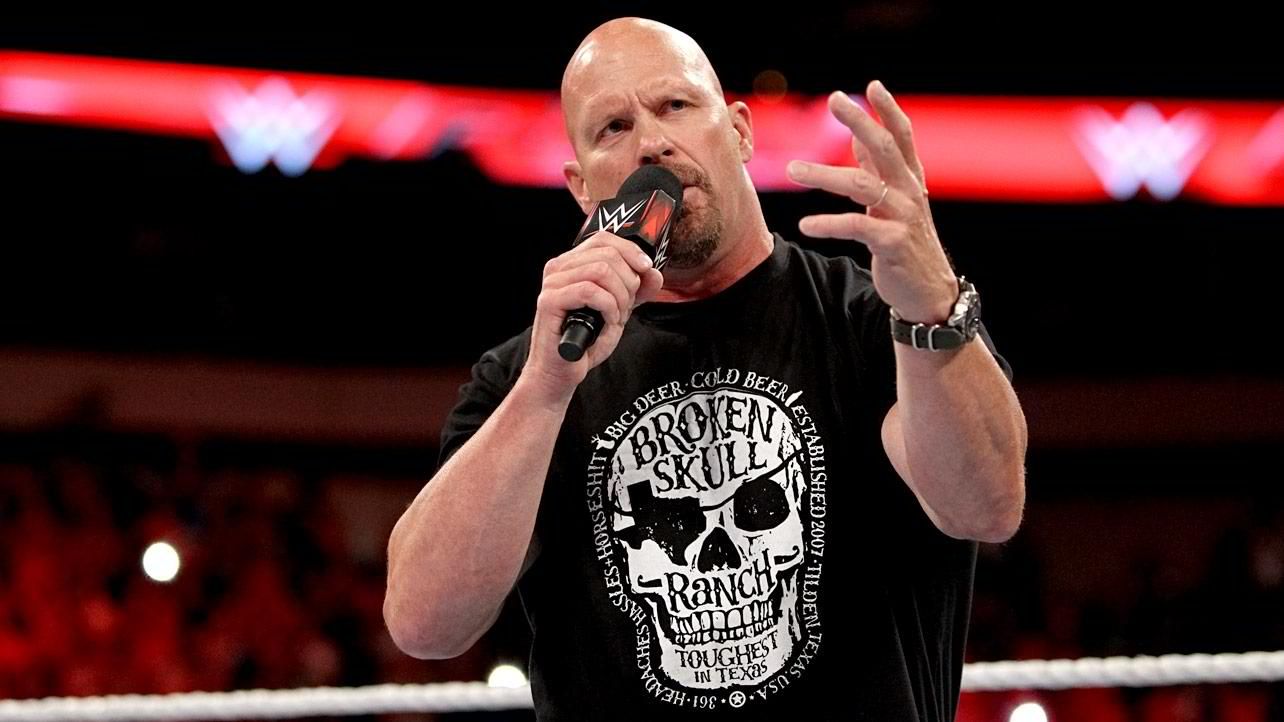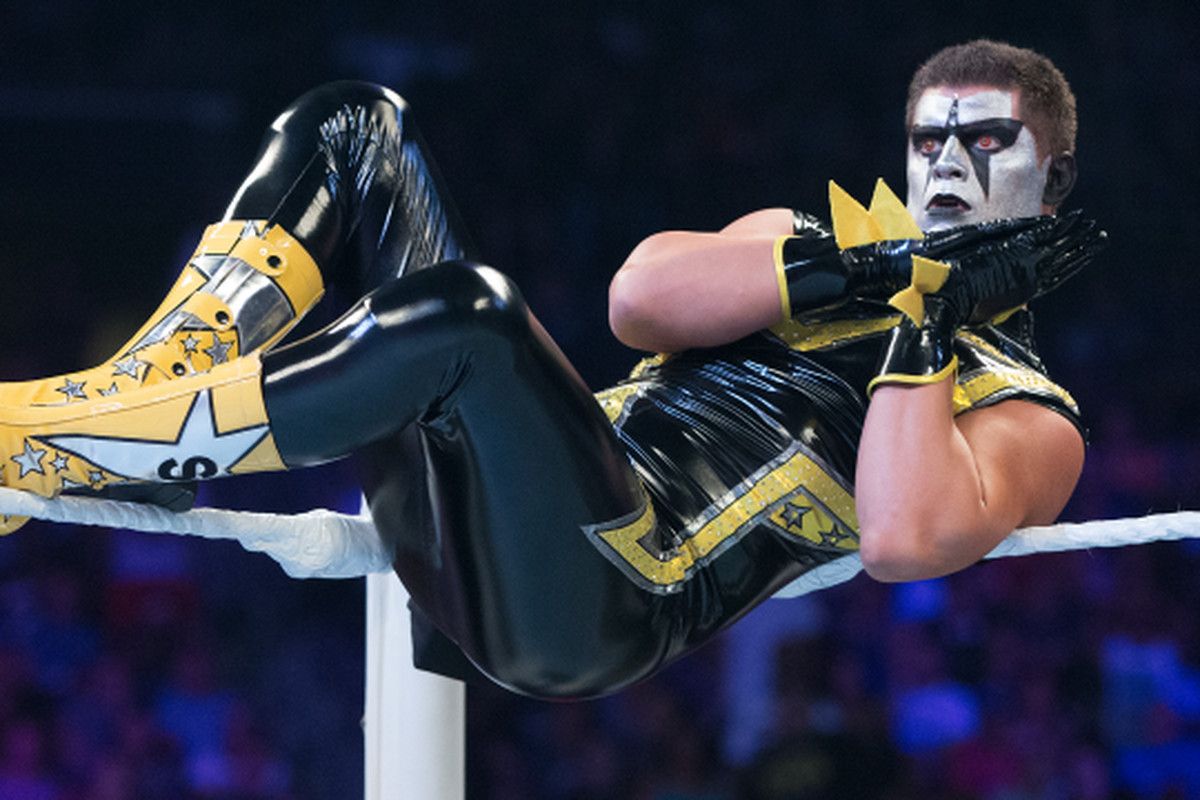It happens all the time. You know a wrestler by a certain name, then in what could be a surprise storyline twist or repackaging, they up and change their names, and oftentimes their entire gimmick as well. This usually happens when wrestlers aren't getting as much mileage as they should from their erstwhile ring names, though there can be other variables that may force a creative team to come up with a brand new name for one of the company's wrestlers. Sometimes it works, and sometimes it just fails outright in its goal of successfully redefining a wrestler.
As there are countless wrestlers who changed their names through the years, we're confining this list to wrestlers who changed their names in the same company, but were NOT repackaged as completely different people, with no immediate or after-the-fact on-air references to their old gimmicks. That means we won't be covering someone like Bray Wyatt, because unlike during his Husky Harris days, nobody talks about him being the son of Mike "IRS" Rotunda. We've also decided to eliminate those times when a company (usually WWE) would drop a wrestler's first or last name, e.g. (Antonio) Cesaro or Elias (Samson), or contract an overly-long ring name (e.g. Hunter Hearst Helmsley becoming Triple H).
With those requirements out of the way, let's now look at 10 wrestlers whose name changes worked out for them, and 10 wrestlers whose name changes held them back even more.
20 20. Worked: John Bradshaw Layfield
Normally, simply adding first or last names to an existing ring name won't qualify a wrestler for this list. But in the case of APA member Bradshaw, who had previously worked as evil cowboy Justin "Hawk" Bradshaw, he got his real first and last name – John Layfield – added on. The rest turned out to be history, as the former cowboy and beer-drinking ass-kicker became a rich New York businessman by way of Texas named John Bradshaw Layfield, or JBL for short.
The name and gimmick change turned out to be the catalyst for an erstwhile lifelong mid-carder and tag team specialist to become a legitimate main eventer as he hit his late 30s, as JBL would go on to hold the WWE Championship for a whopping 281 days. It was WWE's way of rewarding a company man at a time when the company was in dire need of star power, though as we also know, WWE also ended up rewarding one of its most notorious backstage bullies of all-time.
19 19. Didn't: Rockabilly/Mr. A$$
Honestly, Billy Gunn isn't much of a ring name – it was born out of WWE's kid-friendly decision to launch a tag team of kayfabe cowboy brothers called The Smoking Gunns. But it sure as hell is better than Gunn's real name (Monty Sopp), and also much better than the two bad name changes he went through during his WWE tenure. The first, and worst, was in 1997, when Gunn became known as Rockabilly, the Honky Tonk Man's hip-swaying, light-counting protege. Leave it to the erstwhile "Real Double J" to save Rockabilly from those doldrums and convince him to form The New Age Outlaws with him later that year.
Rockabilly may have been the nadir of Billy Gunn's long WWE career push-wise, but it wasn't the last time he went through a bad name change. From 1999 to 2000, he was mostly known as "Mr. Ass," and while he was still an upper mid-card mainstay, it's seldom ever a good career move when your identity (and your ring theme) is based on your heinie and that of others. Just ask Ed "Booty Man" Leslie.
18 18. Worked: Road Dogg
Speaking of The New Age Outlaws, let's look at the name change that did work for the person involved. Originally hired by WWE as Jeff Jarrett's eponymous Roadie, Brian James was eventually revealed as the man who did the singing on Jarrett's country ballad "With My Baby Tonight," and got repackaged as "The Real Double J," Jesse Jammes. I wish I knew where WWE got the idea to add a superfluous letter "m." Perhaps to set the wrestling country singer apart from his outlaw namesake?
As mentioned in the Billy Gunn entry, it was "The Real Double J" that talked Gunn into ditching The Honky Tonk Man and forming The New Age Outlaws. With that, he became "Road Dogg" Jesse James (this time with the normal spelling of "James"), and the Outlaws would soon get over big-time with their irreverent antics and memorable ring intro. It was a true career-saving move, both in storyline and in real life, as many fans fondly remember Road Dogg's Attitude Era antics with the Outlaws and DX, as opposed to his less auspicious beginnings as a roadie and a country singer.
17 17. Didn't: Ed Leslie In WCW (Take Your Pick)
To be honest, it happened so long ago that this writer can't remember the times when WCW acknowledged that it was the same person and the times they didn't. But one thing's for sure – Ed Leslie, better-known as Brutus Beefcake in WWE, had a ton of ring names/gimmicks when he joined best bud Hulk Hogan in WCW. Brother Bruti, The Butcher, The Zodiac, The Man With No Name, The Disciple, and most infamously, The Booty Man – Leslie played them all, as he didn't show a whit of in-ring improvement no matter how often he changed his name/gimmick.
At least Leslie's fellow rear end-lover Billy Gunn (who's also in this list) played an important role in DX. Leslie, on the other hand, was always someone's lackey in WCW, and if part of a stable like the Dungeon of Doom, was among the lowest of the low men. If not for the Hogan connection, he probably should have stuck to cutting hair and watching tag team members superkick their weaker half to the barbershop floor.
16 16. Worked: The Godfather
Pimpin' ain't easy alright, but it was just as hard for WWE to find a ring name that would stick for Charles Wright. After a house show stint as Sir Charles, Wright then became voodoo priest Papa Shango. Years later, he was faux MMA fighter "The Supreme Fighting Machine" Kama, and when that too didn't work, his ring name was expanded to Kama Mustafa as one-fourth of Faarooq's all-African-American iteration of the Nation of Domination.
With The Rock taking over as the Nation's leader in 1998, Kama Mustafa became alternately known as the stable's "Godfather." But it was only when the faction broke up that the Kama name was dropped once and for all, as The Godfather established himself as a wrestling pimp with an ever-changing lineup of "hos." Despite never getting beyond the upper mid-card, The Godfather became immensely popular after his name change, and it was that ring name/gimmick WWE went with when Charles Wright was inducted into the company's Hall of Fame in 2016.
15 15. Didn't: Saba Simba
Tony Atlas was a solid hand for the pre-Hulk Hogan WWE, as he and The Rock's dad, Rocky Johnson, held the company's World Tag Team Championships as the Soul Patrol. A solid singles push was supposedly forthcoming for Atlas, but personal demons got in the way. By 1987, the only Atlas in the company was the completely unrelated Omar, an aging enhancement talent who lost to practically everyone who had a push. But what about Tony? Would WWE welcome him back with open arms if he wanted to return?
The good news was they did, but the bad news is that they saved Atlas from homelessness and drug addiction by repackaging him in 1990 as Saba Simba, a straight-up stereotype African tribesman. It was such a bad gimmick that Roddy Piper immediately exclaimed on commentary that Simba and Atlas were the same person, most likely to Vince McMahon's chagrin. Atlas left the WWE soon after his brief comeback, and it's a good thing WWE recognized his earlier contributions when he was inducted into the Hall of Fame in 2006.
14 14. Worked: Cactus Jack/Dude Love
Now this is a rather unusual example, but since the name changes happened in the same company, it's fair enough that we include Mick Foley's remarkable late '90s run where he juggled three different personas, or should we say, three "Faces of Foley." Originally known to WWE fans as Mankind, the revelation of the deranged boiler room-dweller's real name and fictionalized backstory added some humanity to his character. It wasn't long before fans got to see Foley's other two gimmicks take to the ring – cheesy, tie-dye-wearing hippie Dude Love, and hardcore brawler Cactus Jack, which Foley used during his stints in other promotions, including WCW and ECW.
Be that as it may, Foley only made limited appearances as Dude Love and Cactus Jack, as compared to his matches and promos as Mankind. But it was great to see him having fun playing three distinct characters, all of whom had memorably appeared in the 1998 Royal Rumble. Truly, this was a man who knew how to put butts in the seats during the glory years of the Attitude Era.
13 13. Didn't: Adam Rose
This entry's cheating it a bit. No one said outright on NXT that Adam Rose was the former Leo Kruger, but his pre-debut vignette said it all, with Kruger ominously saying the words "everything you know is about to change," then repeating the same words as Rose, this time delivering the line in a far more lighthearted manner. Either way, everyone at Full Sail knew that it was Ray Leppan playing two different characters, and the new Adam Rose gimmick was a huge hit with NXT crowds when it debuted in March 2014.
Fast forward a few months later, and Rose was on the main roster, with the same entourage of goofy Rosebuds that featured many a future star. At first, the WWE Universe loved Rose and his catchy theme song, but as is often the case, Vince McMahon quickly lost interest in the Russell Brand-knockoff. Rose was pushed down the card in short order, and right before his 2016 release, he was one-fourth of The Social Outcasts, an all-star faction of light-counters, ham-and-eggers, and pin-eaters led by Heath Slater.
Would Leppan have enjoyed main roster success if he stuck it out as vicious mercenary Leo Kruger? We may never know, but there's a fair chance he would have.
12 12. Worked: Dolph Ziggler
Though the Spirit Squad was not mentioned upon his 2008 repackaging, it was obvious that Dolph Ziggler was once known as Nicky, and the male cheerleader connection was firmly established during the Show-Off's feud with The Miz in 2016. Say what you want about Ziggler's potentially go-nowhere current gimmick as a bitter veteran who mocks other wrestlers' entrances, but the long and the short of it is that he could have done much worse than winning two World Heavyweight Championships and five Intercontinental Championships under his current ring name.
Aside from his often-derided stint as male cheerleader Nicky, Ziggler also used his real name, Nick Nemeth, when he served as golf caddy to the controversial Kerwin White, whom you'll also find in this list, albeit under the "didn't work" category. We still wish he was given more opportunities as Ziggler, but at least he didn't reach veteran status in the WWE as part of the Spirit Squad.
11 11. Didn't: Ever Member Of Misfits In Action
The Misfits in Action were one of the many disasters that took place in the final years of WCW, but these guys (and girl) weren't a faction made up of new stars – instead, they were a group of established wrestlers given military-themed name changes based on horrible, Vince Russo-approved puns. Stable leader Hugh Morrus became Gen. Hugh G. Rection (real subtle), "Heavy Metal" Van Hammer became Private Stash, The Wall became Sgt. AWOL, and in a slight case of racial stereotyping, the Mexican-American Chavo Guerrero and African-American Booker T (no, we didn't dig it) became Lt. Loco and G.I. Bro respectively. Oh, and you also had nWo Girl Tylene becoming Major Gunns, and Lash LeRoux becoming Cpl. Cajun.
With its campy nature and the cluster-bleep that was WCW booking circa 2000, the M.I.A. didn't do any favors to anyone in the stable, but somehow, they lasted from April 2000 till the end of the year. Booker T also has to be thankful WCW's ratings were so low – "G.I. Bro" could have seriously compromised his upside had more people given a damn about WCW at that time.
10 10. Worked: Rikishi
You've heard of "third time's the charm," right? Well, it took four tries for Solofa Fatu to find a gimmick that really worked for him. While successful as a Headshrinker, Fatu's first gimmick was a tired Samoan savage stereotype. He then became the super-positive "Make a Difference" Fatu, then the mute, mask-wearing Sultan, with both gimmicks flopping as his weight issues escalated. After spending most of 1998 and 1999 training at Dory Funk's wrestling school, Fatu finally found lasting success as Rikishi Fatu, then Rikishi Phatu, then plain old Rikishi as he teamed up with Too Cool. Apparently, his past as The Sultan was ignored, but it was made clear that this was the same guy who had once tried to "Make a Difference."
Sure, it was a comedic gimmick, and sure, Rikishi "did it for The Rock" in a heel turn that made absolutely no sense and didn't work because the guy was so much better as a fun-loving babyface. But Rikishi's hip-hop dancing and Stinkface finisher made for some entertaining moments in the Attitude Era, and something substantial to look back on when he was inducted into the WWE Hall of Fame in 2015.
9 9. Didn't: Southern Justice
Changing from corny, pun-based ring names to birth names would normally be a great career move for any wrestler. But in the case of The Godwinns –Henry O. and Phineas I. – it didn't help them any. In a rarely-before-seen move, it was acknowledged that Jeff Jarrett and Tennessee Lee's new lackeys, Southern Justice, were previously known as The Godwinns, but were now using their real names, Mark Canterbury and Dennis Knight. At the end of the day, however, Canterbury and Knight were mostly generic bodyguard types, and one might have thought that they would have been better off all along wearing overalls and bathing opponents with hog slop.
Southern Justice ended mere months after they joined forces with Jarrett, as Canterbury suffered a career-ending spinal injury. Knight remained in the WWE and got another name change, becoming Ministry of Darkness follower Mideon, but gaining the most notoriety when he reemerged in 2000 as the fanny-pack-and-thong-wearing streaker "Naked Mideon."
8 8. Worked: Hardcore Holly
With the WWE focusing heavily on occupational gimmicks in 1993, the company introduced a kayfabe stock car driver named Thurman "Sparky" Plugg. Don't feign surprise when we tell you that fans responded to this gimmick with apathy and/or derision. Pretty soon, announcers began to refer to him as Bob "Sparkplug" Holly, and that basically got the ball rolling or his push. The push still wasn't good, but let's face it – the good thing is that he lost the corny ring name once and for all.
After floundering in the mid-card for years using his less goofy ring name, Bob Holly got another name change toward the end of the '90s, and it was the one he used as he achieved his greatest success in the WWE – Hardcore Holly. The new, more no-nonsense ring name and gimmick still had him in the mid-card, but it somehow extended his WWE run by a good 10 years.
7 7. Didn't: Kerwin White
Why, WWE, why? Why would you repackage a tried, tested, and popular wrestler like Chavo Guerrero, force him to renounce his Latino heritage, and have him pretend to be a middle-class white guy named Kerwin? WWE actually went there in 2005, presenting Chavo as Kerwin White, a wrestler who entered the ring to faux-Sinatra ring music while driving a golf cart, and had the most tasteless of catchphrases to accentuate his "middle-class white guy" shtick – "if it's not White, it's not right." Not even the later inclusion of his first name in the catchphrase made it any less offensive.
Aside from the catchphrase, it bears mentioning that Chavo, er, Kerwin, mainly feuded against non-white wrestlers, primarily Shelton Benjamin. And it's always sad to remember that the only thing that forced WWE to put an end to Kerwin White was the real-life tragedy that Chavo dealt with in November 2005 – the death of his beloved uncle, Eddie Guerrero.
6 6. Worked: John Morrison
In his 15 years as a pro wrestler, John Hennigan has worked under a variety of ring names, keeping his first name but frequently changing his in-ring surname. But the name change we all remember is his transition from being Johnny Nitro, the ring name he used since his time with MNM, to being John Morrison. The new name was a reference to legendary Doors vocalist Jim Morrison, and the gimmick had Morrison (John, that is) cutting somewhat cryptic promos and carrying himself like a rock star, not unlike the Lizard King back in the '60s.
From 2007 to 2011, Morrison was a key player in WWE's mid-card scene, winning three Intercontinental Championships, two tag team championships with The Miz (on top of the three he already had with Joey Mercury), and one ECW Championship. Still, many fans felt that the Prince of Parkour deserved better and was unfairly held back because of his lack of size (among other things), and that's probably why he hasn't been too hot on the prospects of a WWE return, instead working for Lucha Underground as Johnny Mundo, and currently for Impact Wrestling as Johnny Impact.
5 5. Didn't: Akeem
If you were a big man in the WWE in the late '80s, chances are your main purpose was to threaten, yet ultimately fail to conquer the unstoppable force that was Hulk Hogan. The One Man Gang was one of those big men who were hired by WWE to destroy jobbers and make Hogan look like a superhero, but he soon found his biker-ish gimmick getting stale, not that it was anything innovative to begin with.
With WWE wanting to stick it to rival booker Dusty Rhodes, the company (with Vince McMahon's obvious blessing) decided to pick on the American Dream's love of African-American culture by transforming the Caucasian OMG into a jive-talking, dashiki-wearing guy named Akeem who just "rediscovered his African roots," with manager Slick acknowledging that OMG and Akeem were one and same. To be fair, Akeem enjoyed a decent push while tagging with the Big Boss Man, but the reasons this name change didn't work are obvious – it was a crude way to rib Dusty, and an offensive gimmick altogether.
4 4. Worked: The Rock
Why include The Rock, which can be a shortened version of Rocky Maivia, when it was made clear earlier why Triple H cannot be included in this list? It's simple – people still call Triple H "Hunter" from time to time, while if The Rock has a surname now, it's Johnson, as in Dwayne. And it's not because WWE doesn't want to acknowledge the fact that the People's Champion is "High Chief" Peter Maivia's grandson; rather, it's the widely-accepted opinion that the Rocky Maivia gimmick, well, kinda sucked. No, make that REALLY sucked.
With a ton of third-generation hype and an overly-nice and respectful persona, "Blue Chipper" Rocky Maivia was doomed to fail. But when WWE turned Rocky heel, they thankfully turned him loose, as The Rock's mic work was truly "electrifying." It also helped that he was much-improved in the ring by that point. So would it have been possible for Dwayne Johnson to become the crossover Hollywood star he currently is, had he stuck it out with a ring name that combined his dad's and grandfather's names? We seriously doubt it.
3 3. Didn't: The Red Rooster
Oh, what could have been had Terry Taylor been the one to assume the Mr. Perfect gimmick. But since we know that the late Curt Hennig would ultimately play the role of (and to) perfection in the WWE, Taylor was instead saddled with a gimmick that stuck to him just like Urkel stuck to Jaleel White. The idea behind The Red Rooster was that Bobby Heenan could make anyone, even a plain-vanilla, inexperienced "rookie" like Terry Taylor, into a star, so aside from being stuck with an awful new ring name, the technically-gifted Taylor was made to look inept in the ring and solely dependent on Heenan's instructions.
After turning face in 1989, The Red Rooster kept the gimmick, and if anything else, he turned the anthropomorphic rooster-posturing up to 11. It's really saying something when the peak of your run in the WWE is a feud with The Brooklyn Brawler. But even with Taylor's Red Rooster ring name setting him up for years of under-card futility, he did, at least, have a long career as a backstage worker that continues up to this day.
2 2. Worked: "Stone Cold" Steve Austin
You had to wonder what Vince McMahon was thinking when he signed Steve Austin to the WWE in 1996 and debuted him as "The Ringmaster," also giving him a mouthpiece in Ted DiBiase even if his mic skills were already a known commodity at that point. Austin hated the gimmick, fans hardly reacted to it, and it looked like WWE was on its way to wasting one of the best wrestlers they had ever pirated from WCW at that point in time. Fortunately, Austin decided to take ownership of things just a month or so into his run, and asked WWE to give him a name change, stat.
While WWE acquiesced to their rising star's request, the oft-told story is that the names they suggested were all potential career-killers – Otto Von Ruthless, Ice Dagger, Fang McFrost, and the immortal Chilly McFreeze. But thanks to his then-wife Jeannie's suggestion to drink his tea before it got "stone cold," a true career-defining ring name was born.
The rest, as they say, is history. And that's the bottom line, because Chilly McFreeze Stone Cold said so.
1 1. Didn't: Stardust
It's something I've mentioned in previous articles – I personally have a soft spot for Cody Rhodes' Stardust gimmick. By and large, however, fans were less receptive to the fact that Cody had transformed into Goldust-lite, working a very similar gimmick to that of his brother, and mainly being used to put newer talents over. Not to mention, Cody himself truly hated the gimmick, and felt that he had more to offer if only WWE allowed him to be himself, or to work that planned Tony Stark-inspired gimmick that ultimately never saw the light of day.
Due to his frustration over WWE not allowing him to drop the Stardust gimmick, Cody Rhodes left the company in 2016, and he's been on fire since then, despite not being allowed to use his in-ring surname due to copyright issues with WWE. He's much happier working the indies these days, and if rumors are to be believed, a lot of WWE Superstars are similarly wanting out, and specifically asking Cody for advice on how to jump ship.


